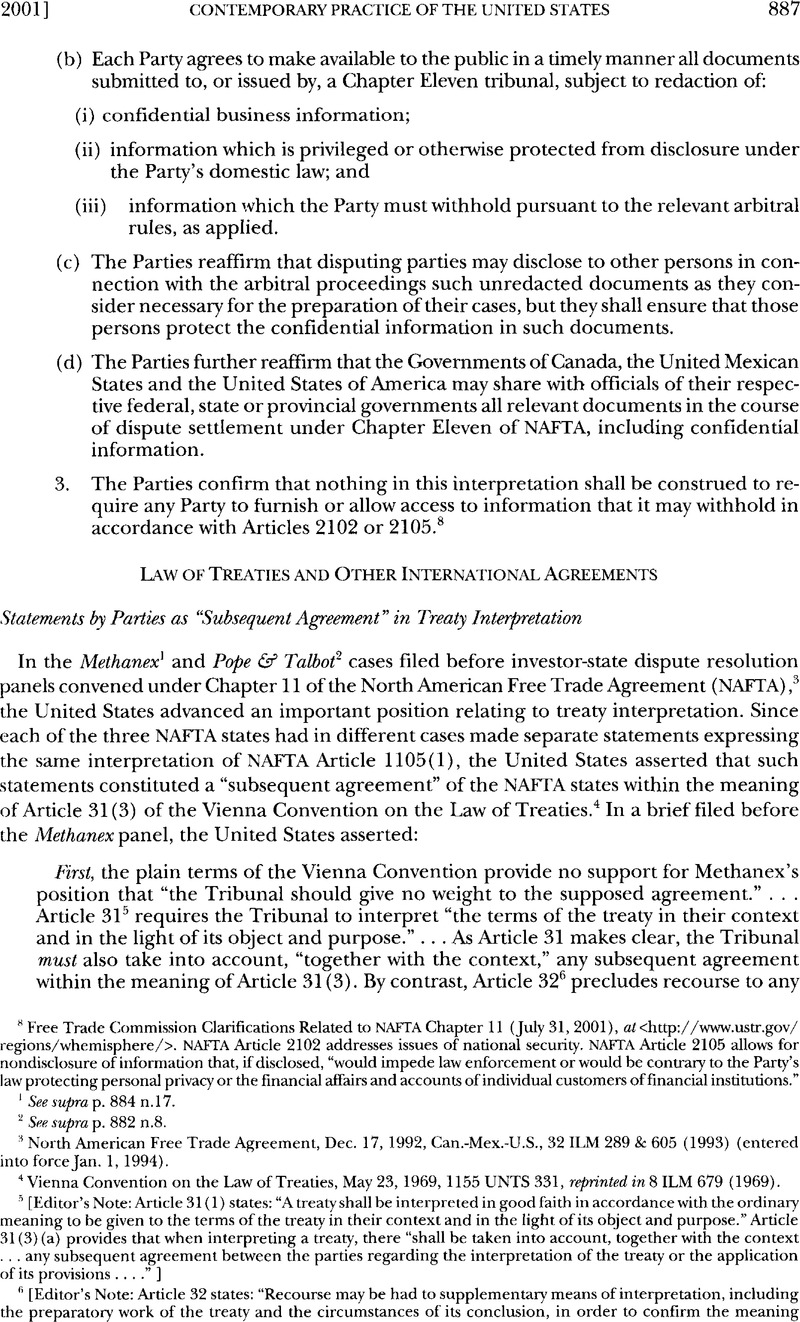No CrossRef data available.
Article contents
Statements by Parties as "Subsequent Agreement" in Treaty Interpretation
Published online by Cambridge University Press: 10 March 2017
Abstract

- Type
- Contemporary Practice of the United States Relating to International Law
- Information
- Copyright
- Copyright © American Society of International Law 2001
References
1 See supra p. 884 n. 17.
2 See supra p. 882 n.8.
3 North American Free Trade Agreement, Dec. 17, 1992, Can.-Mex.-U.S., 32 ILM 289 & 605 (1993) (entered into force Jan. 1, 1994).
4 Vienna Convention on the Law of Treaties, May 23, 1969, 1155 UNTS 331, reprinted in 8 ILM 679 (1969).
5 [Editor’s Note: Article 31(1) states: “A treaty shall be interpreted in good faith in accordance with the ordinary meaning to be given to the terms of the treaty in their context and in the light of its object and purpose.” Article 31 (3) (a) provides that when interpreting a treaty, there “shall be taken into account, together with the context . . . any subsequent agreement between the parties regarding the interpretation of the treaty or the application of its provisions . . . . “]
6 [Editor’s Note: Article 32 states: “Recourse may be had to supplementary means of interpretation, including the preparatory work of the treaty and the circumstances of its conclusion, in order to confirm the meaning resulting from the application of article 31, or to determine the meaning when the interpretation according to article 31: (a) leaves the meaning ambiguous or obscure; or (b) leads to a result which is manifestly absurd or unreasonable.”]
7 [Editor’s Note: Article 28 provides: “Unless a different intention appears from the treaty or is otherwise established, its provisions do not bind a party in relation to any act or fact which took place or any situation which ceased to exist before the date of the entry into force of the treaty with respect to the party.”]
8 Response of Respondent United States of America to Methanex’s Post–Hearing Submission at 2–6 (July 27, 2001), Methanex v. United States (NAFTA Ch. 11 Arb. Trib.) (footnotes omitted) (on file at GWU).
9 Free Trade Commission Clarifications Related to NAFTA Chapter 11 (July 31, 2001), at <http://www.ustr.gov/regions/whemisphere/>.




